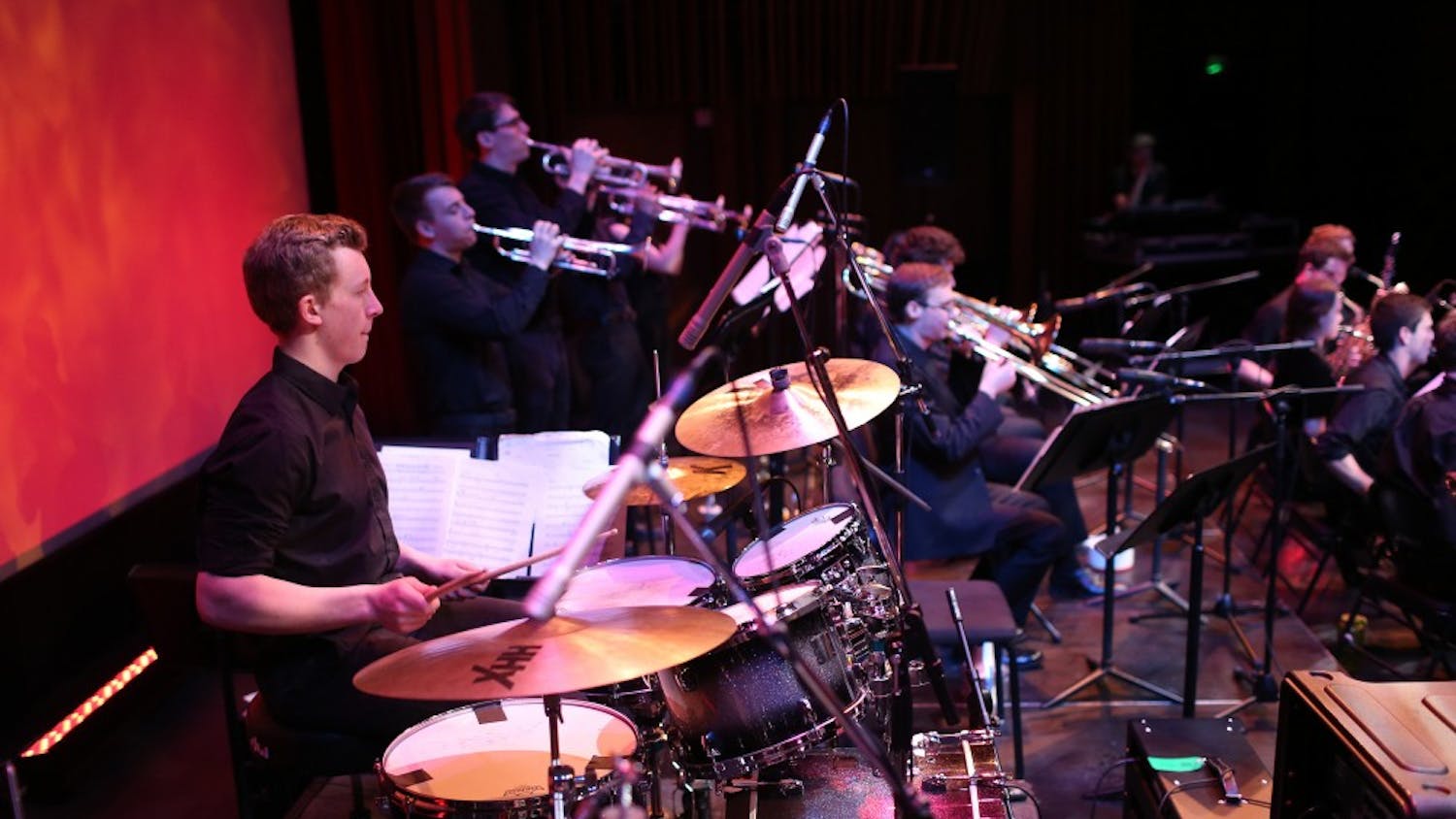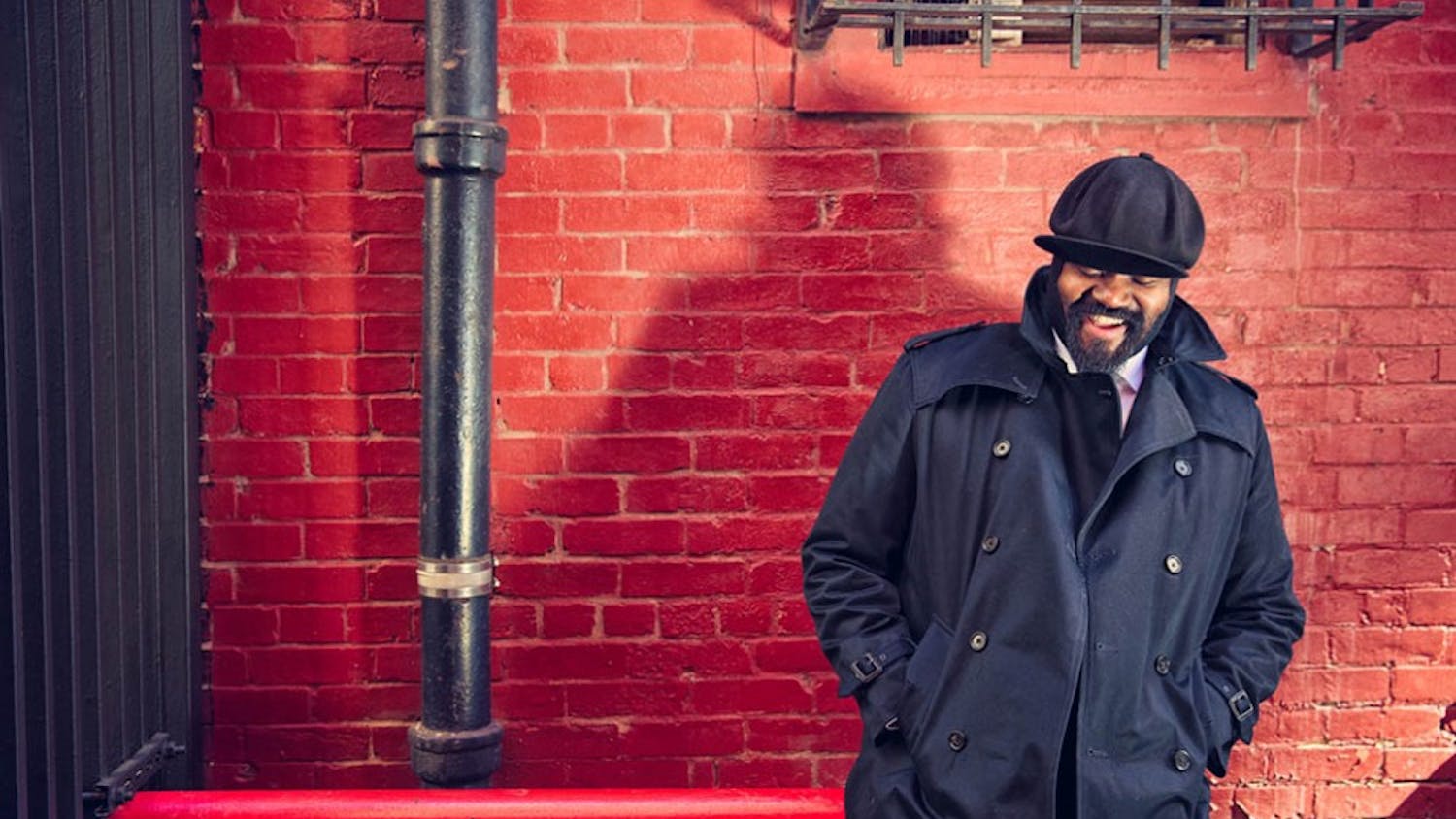Last Thursday, jazz trumpeter Amir ElSaffar and four members of his Rivers of Sound orchestra performed together live from multiple locations for the Hopkins Center for the Arts’s first online concert through its new program, Hop@Home. ElSaffar and the entire 17-member orchestra were originally scheduled to perform at the Hop this spring. The in-person concert has been rescheduled for 2021.
The April 23 YouTube live performance featured ElSaffar on trumpet, santur (a stringed instrument) and vocals, his sister Dena El Saffar on viola and joza (an Iraqi bowed instrument), Tim Moore on percussion, Ole Mathisen on tenor saxophone and Miles Okazaki on guitar. The ensemble performed ElSaffar’s improvisational compositions, which feature an innovative fusion of Arabic and jazz music.
While Western music uses major and minor scales, both of which have twelve notes, traditional Arabic music uses the maqam system, which has an extensive range of microtones. In a post-concert interview, ElSaffar described how musicians often have to learn an entirely new range of notes to perform his compositions. For ElSaffar, what ties both Arabic and jazz music together is their improvisational quality. Musicians have the freedom to play off of each other and bring in their own personal styles.
Rebecca Bailey, Hop publicity coordinator, described how this style of music is particularly well-suited for Earth Day, which was celebrated on April 22.
“[ElSaffar’s] music treats cultural input like water flowing from different sources and intermingling in the most beautiful way,” Bailey said. “It isn’t only just jazz and Middle Eastern, but lots of different cultural influences from the different musicians. We felt that was a great message to deliver through music on Earth Day, when we need to be aware of how interconnected we all are.”
ElSaffar said that he was inspired to perform a virtual concert because he missed playing with other musicians, noting that practicing alone in his apartment was like “playing in a vacuum.” That desire for human interaction through music ultimately overcame any apprehensions he had about the online format.
“We are all isolated suddenly,” ElSaffar said. “I don’t know when in history we have experienced such a degree of isolation. We are suffering in the same way but are unable to communicate. I want to make music that responds to this moment.”
A live performance during quarantine presents unusual challenges. While ElSaffar has performed in online concerts before, musicians typically have access to the necessary technology in advance. Now, musicians have to perform from their homes, ordering the correct audio equipment online and setting it up themselves.
Leading up to the performance, the ensemble worked closely with Todd Campbell, Hop production manager, to iron out any technical kinks.
“The biggest thing we had to discuss was the balancing between the five musicians that were playing because on my end, I didn’t have any individual volume control like we would have had in the theater,” Campbell said of the rehearsal process. “Normally, a sound engineer would be sitting with the audience and making sound adjustments. Instead, I had to give verbal feedback to the musicians, and they had to make volume changes on their computer or adjust how close they were to the microphone.”
According to Campbell, the performers also experimented with different software for recording the performance. They tried using Zoom but found that the conference call features altered the music. For example, Zoom would automatically filter out what it thought was background noise, which made it impossible to hear quiet melodies, and it would also make one musician louder than the others when it determined that a person was trying to speak. Instead, Campbell and the performers decided to use StreamYard, a live streaming studio service that connects directly to Facebook or YouTube.
As with any live performance, things didn’t always go as planned. During the concert, a delivery person arrived at ElSaffar’s door and rang the doorbell multiple times. In addition to unexpected deliveries, there was the occasional lag where one musician’s audio would temporarily drop out altogether.
“During the performance, I had moments of really feeling elated and so connected to the other musicians, but other times I felt like, ‘Hello can you hear me?’” ElSaffar said.
Some viewers shared in this frustration. Lucas James ’21, who plays the trombone with the Coast Jazz Orchestra at Dartmouth, said that he was impressed by the incredible talent of the players but couldn’t help but wish that he could watch the performance in person.
“There were moments where I think they were trying to play in unison, but it sounded out of sync,” James said. “That made me wonder if this is an intended effect, or is this the internet lagging? That took me out of the moment for a little bit.”
Despite the challenges, the performers were able to connect with viewers. According to Campbell, the Hop marketing team used the chat feature on YouTube to interact with audience members and answer questions in real time. The online format also allowed the performers to reach more viewers than a traditional concert. ElSaffar received messages from his friends all over the world who watched the performance, and he said that he was excited to see how many people would continue to watch the video on YouTube in the future.
Although the online medium took some getting used to, the concert was still a very powerful experience for Bailey.
“Because of the integrity of the artistry, I forgot about the medium,” Bailey said. “I was transported by the way they listen to each other and respond to each other and the beautiful sound each of them makes on their instruments and how those sounds combine together. I felt like the musicians were transported, too.”
While James said that he still prefers in-person concerts, he applauded the Hop for hosting online concerts and supporting artists.
“We have to recognize the power musicians have to make our lives better and to keep our spirits up,” James said. “It is our duty to support these incredible artists.”




